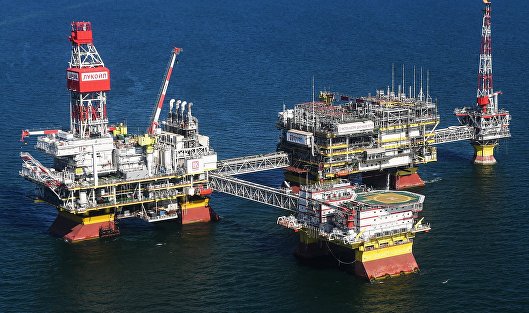MOSCOW, September 3 – PRIME, Andrey Karabyants. The price ceiling for Russian oil, which the G7 is seeking, is unattainable without the support of the widest possible range of states – and the inventors of sanctions have problems with this. The lack of consensus casts doubt on the ability to achieve the goal of reducing Moscow’s oil revenues while avoiding shortages and rising prices on the world market.
Too cheap: Europe took up arms against Russian gas
AS AGREED
G7 finance ministers have approved an action plan aimed at reducing Russia’s oil revenues. POn the results of the meeting on Friday, they agreed on the introduction of a price limit for Russian oil, and also confirmed plans to limit the cost of Russian gas. This follows from a statement published on the website of the German Ministry of Finance.
The details of the plan, as expected by analysts, are not disclosed – the maximum allowable price at which Russian oil is allowed to be bought remains unclear. In June, the leaders of the G7 countries instructed the relevant structures to conduct a study and find out what price ceiling for Russian oil would be acceptable for Western oil refiners and traders.
There are no data from these studies yet, and following the results of the meeting on Friday, they agreed that the initial level of restriction would be adopted based on technical aspects and could be revised. According to the plan, if anyone decides to buy Russian oil at a price higher than the ceiling, they will be denied credit and shipping insurance. It is allowed to introduce additional measures to ensure the effectiveness of the introduced measure.
The meeting participants called on “all countries” to join the restriction. The statement said that they are developing a mitigation mechanism that will provide vulnerable countries with access to the energy market, including the Russian one.
The IEA estimates that Russian oil exports in July fell by 115,000 bpd from the previous month to 7.4 million bpd, just below the 2021 average of 7.5 million bpd. At the same time, according to IEA calculations, Russia’s income from oil exports fell by $2 billion to $19 billion, mainly due to falling world oil prices.
NO SUPPORT
The G7 includes the US, UK, Canada, France, Germany, Italy and Japan. Many experts in the West are sure that the efforts of seven countries are not enough to meet the price ceiling when buying Russian oil – it is necessary to enlist wider support, primarily from India and China. These countries are consumers of Russian oil and are in favor of further development of economic relations with Moscow, and therefore do not express a desire to support the G7 initiative.
However, the leaders of a number of Western countries are convinced that India and China, on the contrary, are interested in maintaining a price ceiling, since this will allow them to buy Russian oil cheaper than now. The German Finance Ministry said they want to convince all EU members that the wider the coalition, the faster it will be possible to achieve results.
Compliance with the price ceiling when buying Russian oil should be provided by London-based insurance companies, according to the West. According to various estimates, these companies insure approximately 95% of all maritime oil shipments in the world. But there are other companies in the world that can replace the London insurers. This makes it possible not to comply with the established price ceiling and makes the G7 initiative meaningless.
AND EAT FISH AND DRINK AQUARIUM
In the West, they are trying to create a pricing mechanism that will significantly reduce Moscow’s income from oil supplies abroad, but will not lead to a cessation of exports. The price ceiling should slightly exceed the cost of producing Russian oil and the costs associated with its export abroad. This will provide a minimum profit for Russian oil companies, but will not lead to an increase in prices on the world market due to a sharp reduction in supply.
In March, the EU announced its intention to impose an embargo on oil supplies from Russia in December 2022, which led to a sharp jump in oil prices. The US Treasury was very concerned that after the embargo, oil could rise in price to $140/bbl. Washington proposed introducing a price ceiling to prevent a rise in the price of raw materials of strategic importance to the US and the world.
In turn, Russia, as always, found an asymmetric answer to this. Alexander Novak, Deputy Prime Minister of the Russian Federation, who is responsible in the government for the fuel and energy complex, said the day before that the introduction of a price ceiling is contrary to market pricing, and Russia will not sell oil to countries that support the G7 initiative. Thus, it is possible that expensive oil will end up only for the “chosen ones”.















